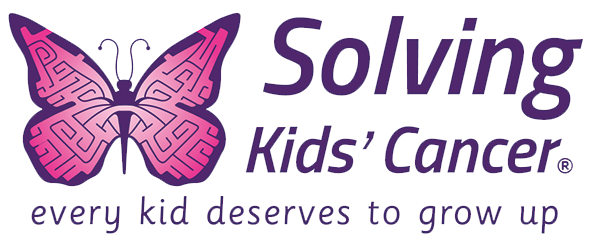Posts by neonadmin
Can We Kill Cancer Cells Using a New Drug That Stops DNA Repair?
Solving Kids’ Cancer created this research project to test CHK1 inhibitors in neuroblastoma and medulloblastoma. After this research was complete, a phase I clinical trial for children with the best approach was planned and is now underway. Project Title: CHK1 Inhibition as Therapeutic Strategy for Children with Neuroblastoma and Medulloblastoma Researcher: Kristina Cole, MD, PhD…
Read MoreWhat Drugs Will Target Cancer Stem Cells?
Solving Kids’ Cancer created this program to identify new promising agents for these kids. Researchers were able to successfully isolate populations of neuroblastoma cells with the properties of cancer stem cells Project Title: Drug Development Program for Neuroblastoma Stem Cells Researcher: David Kaplan, PhD Institution: The Hospital for Sick Children Study Type: Preclinical Status: Completed…
Read MoreBy Engineering a Herpes Virus, Can We Target Tumor Cells?
HSV1716 (Seprehvir) is a “first in class” engineered oncolytic virus derived from the herpes simplex virus, and is designed to target and destroy cancer cells. Solving Kids’ Cancer brought this cutting-edge research to the U.S. and developed the first clinical trial for children in 2010. Project Title: Dose Escalation Study of Intratumoral Herpes Simplex Virus-1…
Read MoreVinblastine and Sirolimus in Patients With Recurrent or Refractory Solid Tumors Including CNS Tumors
Solving Kids’ Cancer initiated a research project to screen thousands of drugs that were not used for cancer against neuroblastoma tumor-initiating stem cells. These cells are a special subset of tumor cells that may be responsible for relapse in patients. Project Title: Vinblastine and Sirolimus in Pediatric Patients With Recurrent or Refractory Solid Tumors Including…
Read MoreWhich Virus is Most Effective at Killing Cancer Cells?
Solving Kids’ Cancer developed a novel program to harness cutting-edge technology to identify more promising viruses. Project Title: Oncolytic Virus Development Program for Neuroblastoma Researcher: David Stojdl, PhD Institution: Children’s Hospital of Eastern Ontario Research Institute Study Type: Preclinical Status: Completed There are types of viruses that have the potential to kill cancer cells while…
Read MoreCan a Transplant Using a Parent’s Stem Cells Followed by a Parent’s NK Cells Help Fight Cancer in a Child?
Haploidentical transplant, which uses donor bone marrow from a half-matched parent or sibling, has been successful in curing some cancers, including leukemia. Solving Kids’ Cancer supported this clinical trial based on prior research. Project Title: Reduced Intensity Haploidentical Transplantation with NK Cell Infusion for Pediatric Acute Leukemia and High Risk Solid Tumors Researcher: Kenneth DeSantes,…
Read MoreWill a Modified Small Pox Virus Kill Cancer Cells?
Solving Kids’ Cancer initiated and funded the first trial in children using JX-594, a virus strain derived from the same vaccine used to eradicate small pox, for children with solid tumors. Project Title: Vaccinia Virus JX-594 for Relapsed/Refractory Neuroblastoma and Other Pediatric Solid Tumors Researcher: Timothy Cripe, MD, PhD Institution: Cincinnati Children’s Hospital, Texas Children’s…
Read MoreBy Finding Weaknesses in Cancer Stem Cells, Can We Prevent Relapse?
Researchers at the Hospital for Sick Children in Toronto were among the first to identify and characterize neuroblastoma cancer stem cells, which are believed to be responsible for relapse. Researchers isolated these unique cancer cells from patients, and screened hundreds of drugs against them. Project Title: Neuroblastoma Drug Discovery and Development Program Researcher: David Kaplan,…
Read MoreCan a Drug For Another Disease Be Used Against Neuroblastoma and Brain Tumors?
After the successful completion of the phase 1 trial, which determined both the safety and correct dosage of the combination of drugs, Solving Kids’ Cancer launched a phase II trial to test Nifurtimox in more children with neuroblastoma, and also in children with medulloblastoma. Project Title: Nifurtimox for Refractory or Relapsed Neuroblastoma or Medulloblastoma Researcher: Giselle…
Read MoreCan a Drug For Another Disease Be Used Against Neuroblastoma?
Drugs used for another disease are occasionally found to work against cancer, and sometimes this discovery happens by accident. This was the case with Nifurtimox, a drug used to treat a parasitic disease. Study Title: Nifurtimox for Relapsed or Refractory Neuroblastoma Researcher: Giselle Sholler, MD Institution: University of Vermont/ Vermont Cancer Center Study Type: Phase…
Read More
